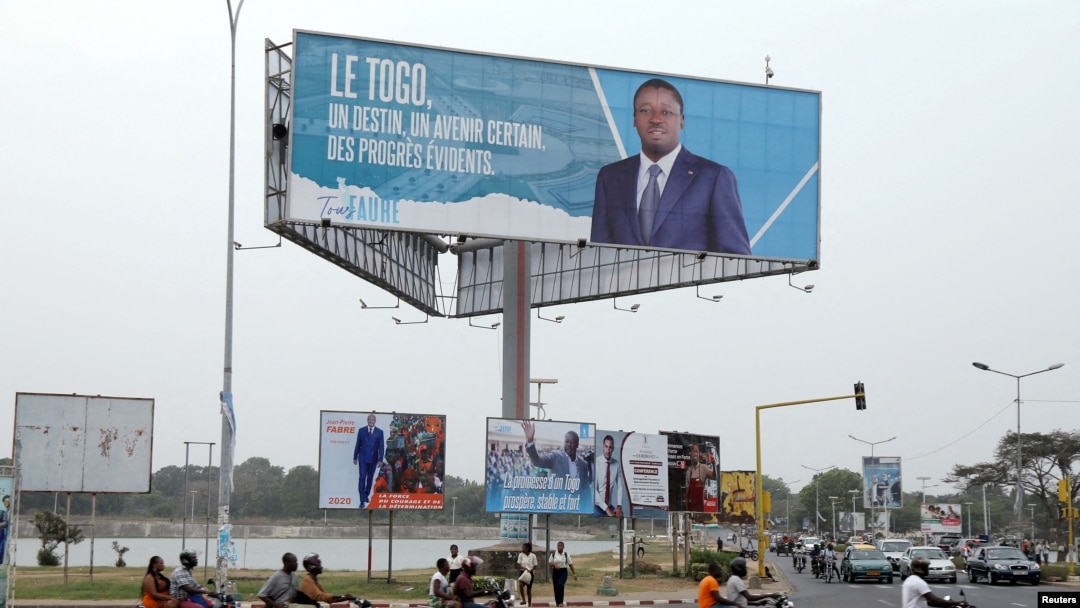Monday's ballot will take place after lawmakers this month passed the reform that critics say allows President Faure Gnassingbe to extend his family's more than 50 years in power in the small West Africa state.
Togo's opposition boycotted the last legislative election in 2018, citing irregularities. This time, they have rallied supporters to challenge the dominance of Gnassingbe's ruling UNIR party.
With caravans of vehicles, the main opposition National Alliance for Change, or ANC, crisscrossed streets of the capital, before arriving in a public square for a rally.
Activists wore the party's orange t-shirts and chanted victory slogans.
"This is the change we want, and I am sure that this time, the opposition will emerge victorious if we come out massively on Monday," Rose Gnonato, a housewife, told AFP.
Already in power for nearly twenty years, Gnassingbe succeeded his father who ruled for almost four decades before him, a dynasty critics say will be extended with the new reforms.
Gnassingbe has been re-elected four times, each time in votes challenged by the opposition as unfair.
Controversial reform
According to the reform adopted by lawmakers on April 19, Togo's president will now become a symbolic role elected by parliament.
Power will reside in the hands of the new president of the council of ministers, a sort of super-Prime Minister who automatically will be the leader of the majority party in the new assembly.
Gnassingbe is head of the ruling UNIR, which already has a majority. Critics say this allows him to bypass term limits on the presidency by assuming the newly created role.
For the opposition, this means it needs a strong challenge in the legislative vote.
"Our mobilization is strong from Lome to the north of the country. With victory, the opposition will have the majority in the National Assembly to change the new constitution," said Louis Dovi, a driver.
The ruling UNIR, or Union for the Republic, also hosted a large gathering at one of Lome's beach areas, followed by a concert, in a show of force.
"The UNIR party will win these elections hands down to allow our champion to easily continue the country's development," said Paul Boglogan, a student, dressed in a white T-shirt printed with the portrait of Gnassingbe.
On Monday, Togolese will elect new lawmakers but also for the first time regional representatives, under the new constitution that shifts the country from a presidential to a parliamentary regime.
Critics say the reform was an "institutional coup" tailored to keep Gnassingbe in power; supporters say it makes Togo's democracy more representative.
In Togo, all presidential elections since the start of democracy in 1990 have been challenged by the opposition, often with outbreaks of violence, notably during the presidential election of April 2005.


